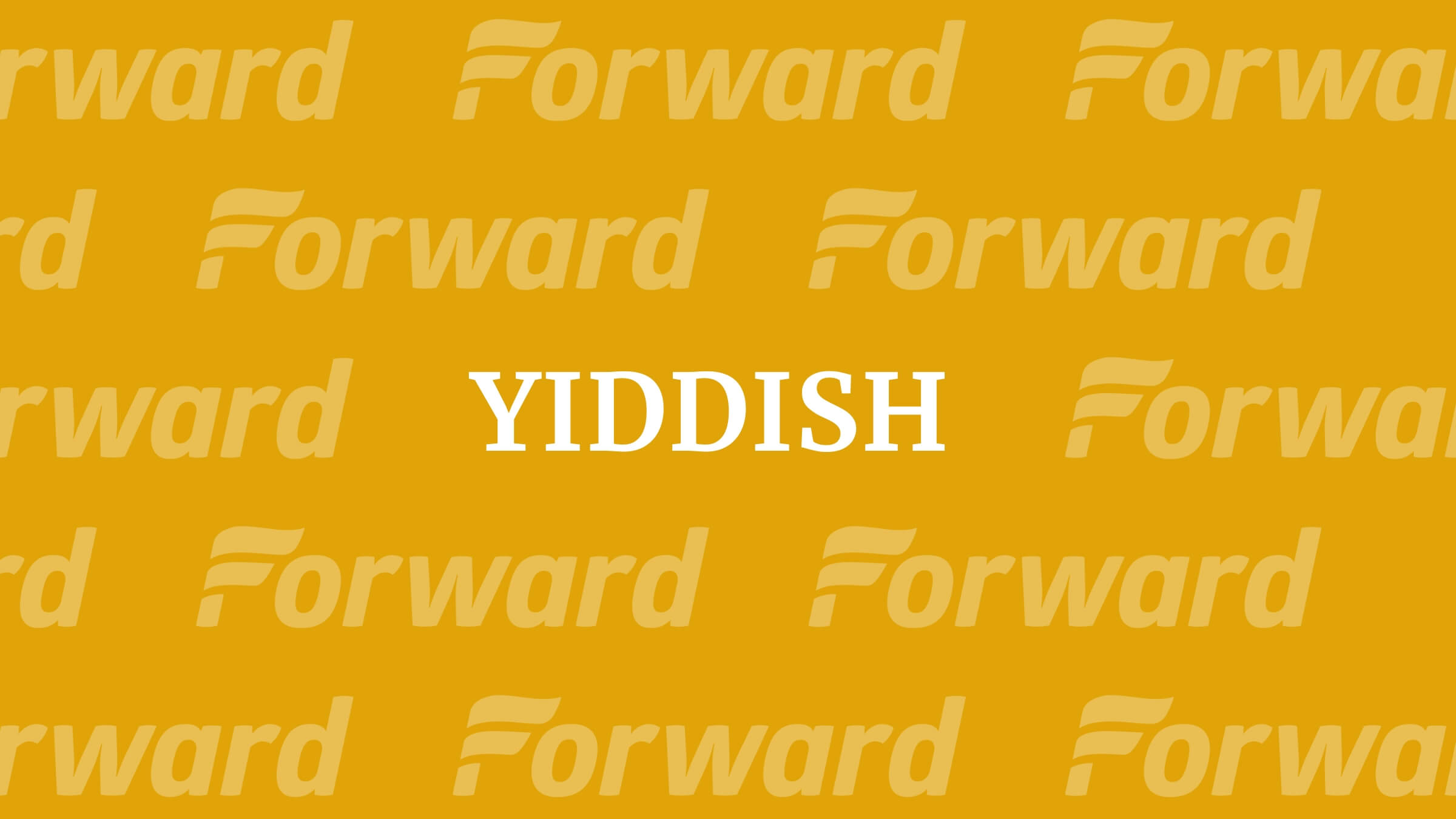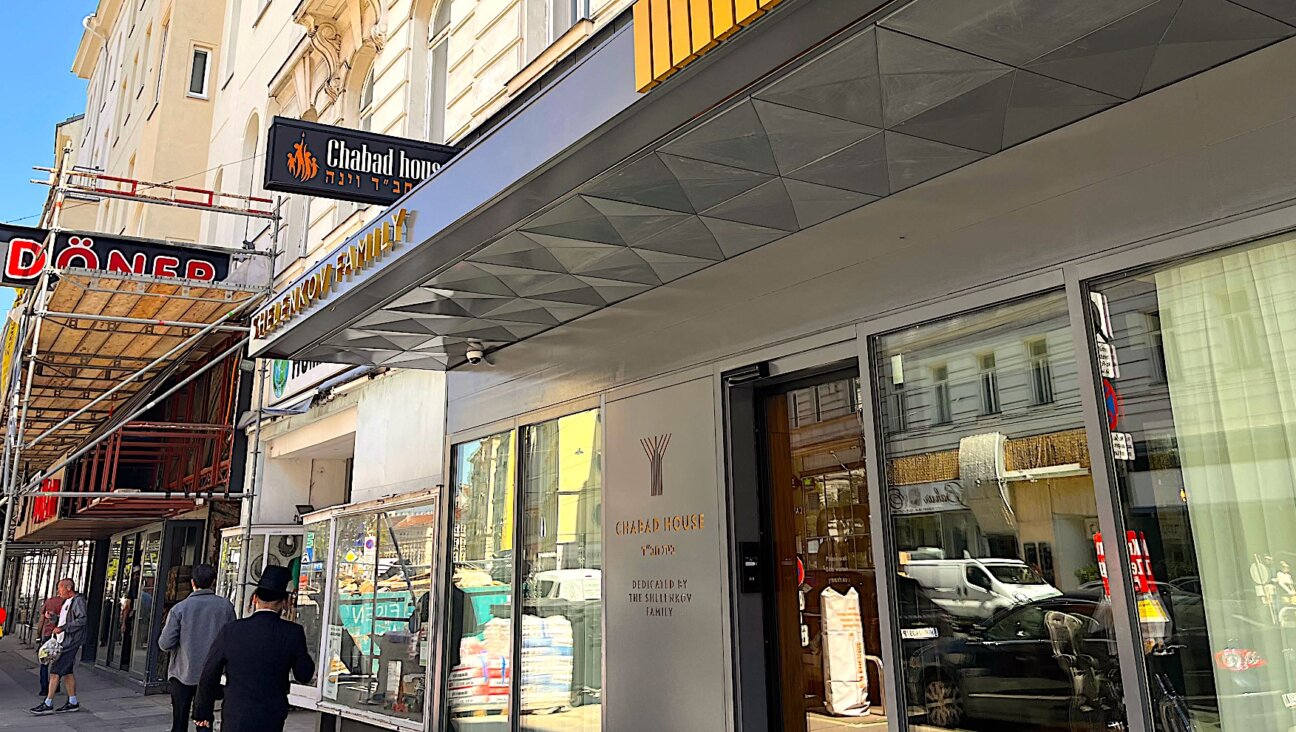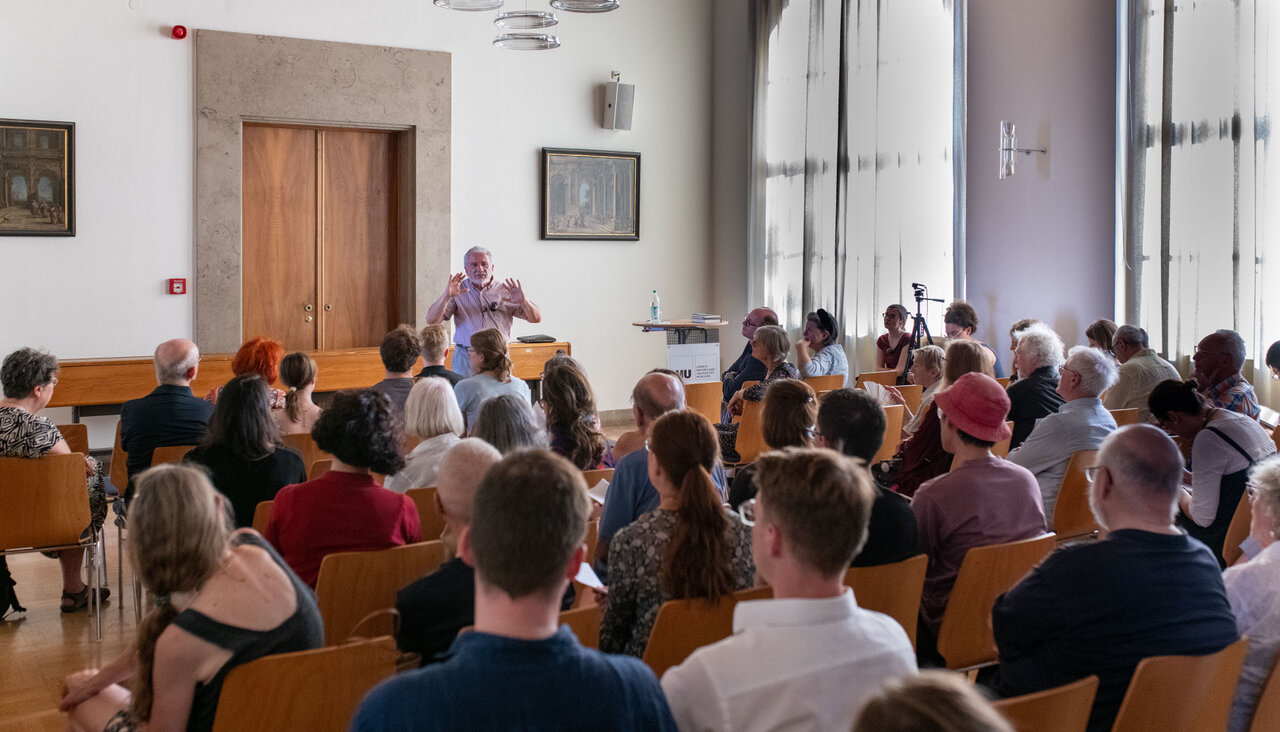בוך פֿון פּיעסעס פֿון דניאל גלאיBook of Four New Plays by Daniel Galay
אין דער זאַמלונג געפֿינט זיך אַ דראַמע וועגן אַפֿריקאַנער אימיגראַנטן און אַ פֿאַרסע וועגן ייִדישיסטן.

Graphic by Angelie Zaslavsky
אין ישׂראל איז לעצטנס אַרויס פֿון דרוק דאָס בוך „אַ מעשׂה מיט אַ פּעקל‟, וואָס אַנטהאַלט פֿיר פּיעסעס אָנגעשריבן פֿונעם דראַמאַטורג דניאל גלאי במשך פֿון די יאָרן 2017 און 2018. דאָס בוך, וואָס איז דערשינען ווי אַ טייל פֿון דער פֿאַרלעגערישער טעטיקייט בײַם „ישׂראלדיקן פֿאַראיין פֿון ייִדישע שרײַבער און זשורנאַליסטן אויפֿן נאָמען פֿון ה. לייוויק‟, קען מען באַשטעלן דאָ.
די ערשטע פּיעסע אין דער זאַמלונג איז, צום טייל, אַן אויטאָביאָגראַפֿישע. זי פֿאָלגט נאָך די טריט פֿון אַ ייִדישער משפּחה פֿון פּוילן קיין אַרגענטינע און דערנאָך קיין ישׂראל. די פּיעסע „טאַנץ אין פֿליפּאָרט‟ איז אַ פֿאַרסע וועגן דעם הײַנטיקן ייִדישלאַנד, „זײַנע פֿילפֿאַרביקע טיפּן‟ און אינסטיטוציעס. די פּיעסע „שוואַרץ־ווײַסער קאָנטראַפּונקט‟ איז אַ דראַמע וואָס שילדערט די הײַנטיקע פּראָבלעמען פֿאַרבונדן מיט דער מאַסן־עמיגראַציע פֿון אַפֿריקאַנער קיין אייראָפּע און די היסטאָרישע באַציִונגען צווישן די צוויי קאָנטינענטן. די פֿערטע פּיעסע, „אַבוש און זאָשקע‟, איז אַן אינסצענירונג פֿון אַבֿרהם מאירקעוויטשעס ביכער, וואָס באַשרײַבט די צעשיידונג פֿון אַ יונגן פּאָרפֿאָלק אין די ערשטע חדשים פֿון דער דײַטשישער אָקופּאַציע און די חרטה וואָס אַבוש לײַדט שפּעטער צוליב דעם.
דניאל גלאַי איז געבוירן געוואָרן אין אַרגענטינע, אַ קינד פֿון ייִדישע אַקטיאָרן. זינט 2001 איז ער דער פֿאָרזיצער פֿונעם „פֿאַראיין פֿון ייִדישע שרײַבער און זשורנאַליסטן אין ישׂראל‟. זײַנע אַרטיקלען זענען שוין דערשינען אין אַ ריי צײַטונגען און זשורנאַלן, אַרײַנגערעכנט די „לעצטע נײַעס‟, „ישׂראל שטימע‟, פֿאָרווערטס און Mundo Israelita. ער איז אויך אַ באַקאַנטער קאָמפּאָזיטאָר, וואָס שאַפֿט מוזיק צו באַגלייטן ייִדישע און העברעיִשע לידער און האָט אָנגעשריבן אָפּערעס, באַזירט אויף דער ייִדישער ליטעראַטור. אין 2009 האָט ער באַקומען די ישׂראל־פּרעמיערס פּרעמיע פֿאַר זײַנע קאָמפּאָזיציעס.





















